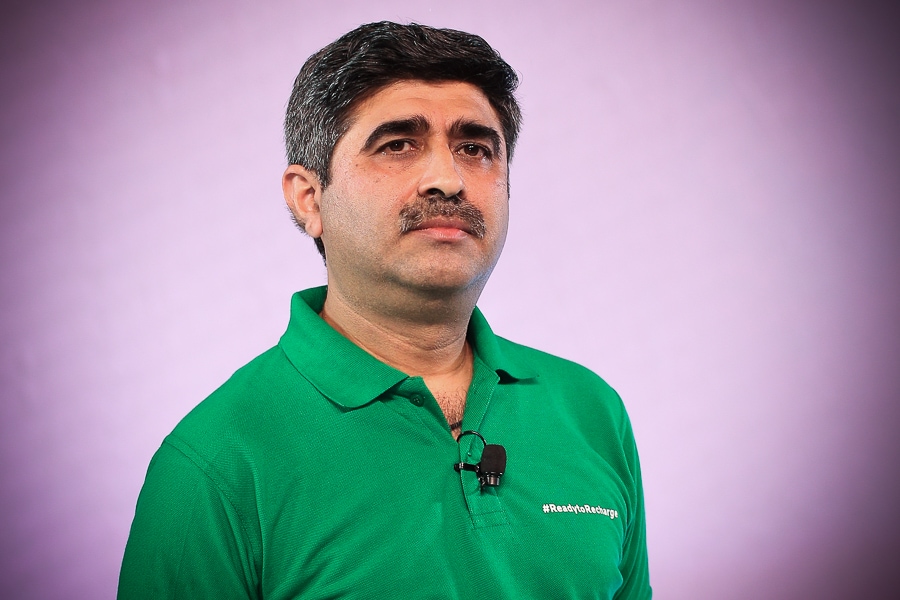Both the initiatives were announced under the leadership of Jyoti Malhotra, who took over as the managing director of Volvo Cars - India in March this year. He was earlier head of sales and marketing in the company.
Once the first wave of Covid-19 was contained and India had started reopening, until March things were going pretty well. The Indian luxury automobile sector had just started recovering and it was buoyant. We also launched our electric car XC40. But soon the more disastrous and challenging second wave emerged. By May, all our dealerships in India were closed and so was our assembly unit in Bengaluru.
While it was for the best and in compliance with the government’s regulations, last month was tough. We are still recovering from it and are hoping June will be a better month.
Q. How soon do you think the luxury car market in India will recover?
That is difficult to predict. But if we go by last year’s recovery trend post the first wave, things look promising. Nevertheless, a lot depends on how soon the government will end the lockdown and what is the customer sentiment then. Having said that, I do feel that there is a lot of pent-up demand, and the market will bounce back soon.
Q. What is the current consumer sentiment?
The consumer behaviour after the second wave is yet to be judged. But we do believe that this lull is temporary. Also, many consumers are now seeing the car and booking car services and test drives online, and utilising our online ‘Contactless’ programme. We too are working towards creating the best ways to engage our consumers online and facilitate online transactions. It is the best way to minimise physical contact for everyone’s safety, which is our brand’s core philosophy and offering.
For us, 50 percent enquiries are now coming online, and we believe this trend will continue and grow as safety is one of the biggest concerns for customers today.
The second is the impact of their purchase on the environment. Indian consumers are increasingly becoming environment conscious. Given that, all our offerings by the last quarter of this year will have petrol variants. We are also committed to introducing more electric cars. We will be introducing one electric car every year and by 2025 we will have a big inventory of electric cars in India.
Q. What are the changes that have been made in the marketing and promotion strategies?
Our focus is on creating a safe product viewing and buying experience. That forms the crux of all our current strategies. We have used this time in the lockdown to train our teams and sensitise them towards all aspects of health safety, and ensured that following all the best safety protocols are imbibed in their professional behaviour.
Q. Why did Volvo launch the insurance programme for dealer employees?
For us safety of not just our customers but also of our employees and partners is extremely important. Dealerships, especially, are like our extended arms. They are the ones dealing with the customers directly. While many of us can work from home, our dealer employees must service the consumers and be out there. Hence, they are ones getting exposed the most. Also, the second wave was a lot more challenging. We all lost people in our social circles. We realised that it is our moral responsibility to safeguard our dealer employees as well. After all, one lost employee for us could be the loss of an earning member for an entire family. We also extended the benefits to employees who lost their battle to Covid-19 before the insurance was announced.
Q. The luxury markets in China and the US are recovering rapidly because of revenge buying. Do you see that consumer behaviour in India as well?
I don’t think revenge buying is an apt term for Indian consumers. I would say that the Indian privileged lot is very responsible and are aware that their buying behaviour contributes to the economy. Most customers who had booked cars with us in the first wave or after it have not cancelled their bookings. Thanks to these consumers, the market will recover.
Q. Where do you see the Indian luxury automobile sector going?
The market is poised to grow. There is a lot of aspiration in the country and our economy should pick up as well. Our research says that luxury customers are keenly waiting for electric cars. Yes, there is some amount of adoption anxiety, but luxury car consumers have the means to install chargers in their homes and office. So I would not worry too much.
Q. In these uncertain times, how do you motivate your team and yourself?
I believe constant communication is very important. We do a small tea and coffee session every week, wherein all the employees are encouraged to discuss their worries and anxieties. We created a small health and safety team that checks on all our dealer employees and helps them or their family members with resources if they are suffering from Covid-19. We also organised mental well-being webinars for all our employees.
Besides, we introduced caregiver leave for those who had to attend to their Covid-positive family members. We also lightened their workload. Some important review meetings were postponed. The idea is to assure our employees that we are all in this together.
As for me, walking and listening to old songs calms me and I do that every day. It keeps me going.

 Jyoti Malhotra, managing director of Volvo Cars - India[br]
Jyoti Malhotra, managing director of Volvo Cars - India[br]